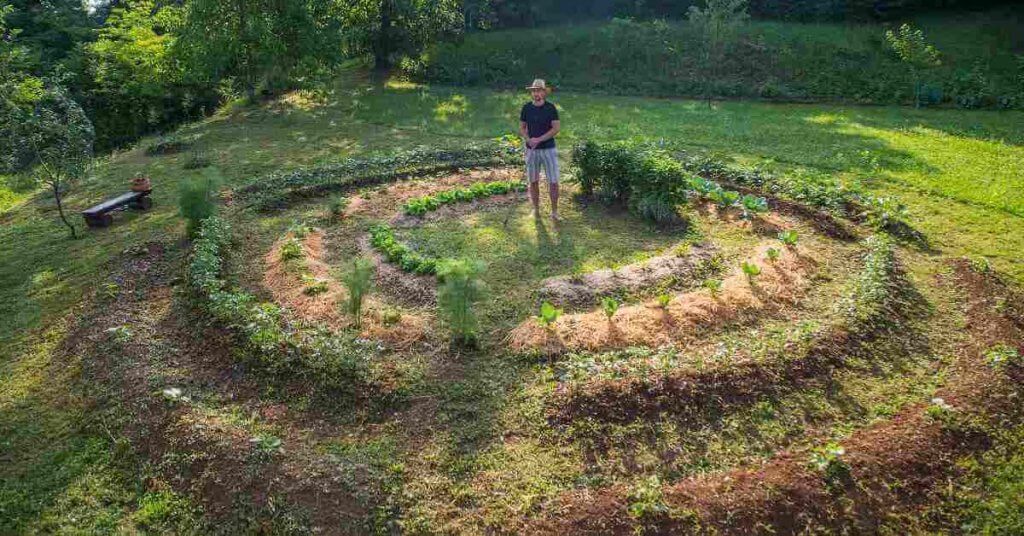
How to Start a Permaculture Garden In 8 Simple Steps
Learn how to start a permaculture garden: an easy beginners guide to creating a sustainable, thriving ecosystem in your own yard.
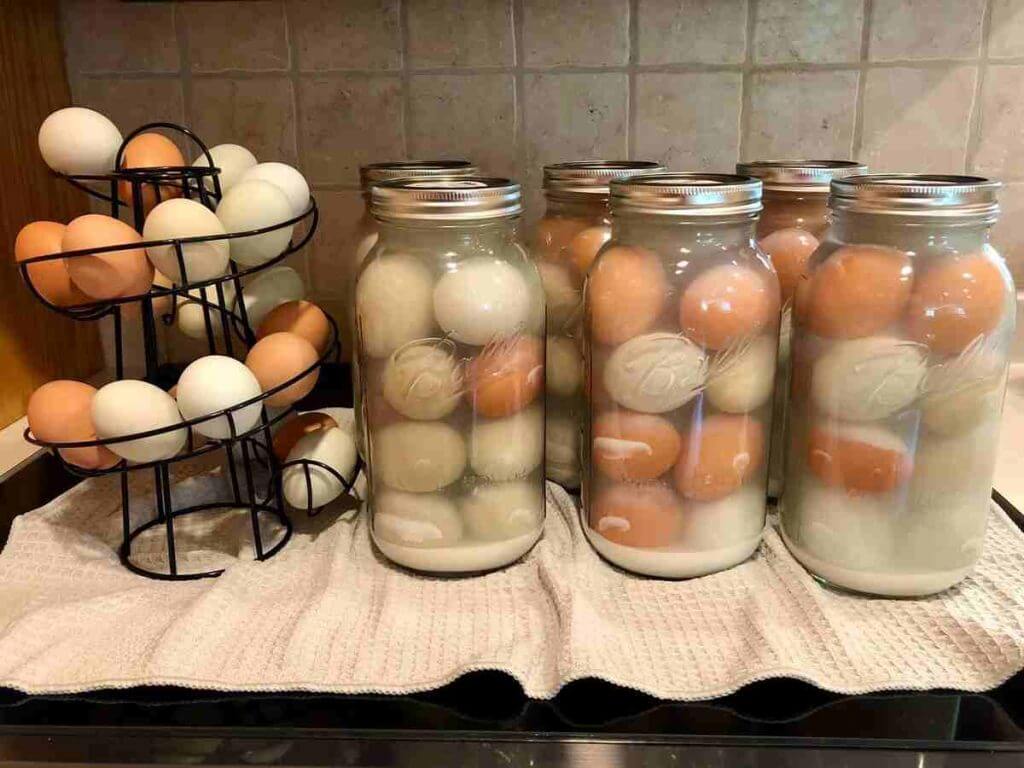
While we like to believe that society has become more advanced and knowledgeable, the advent of modern conveniences like refrigerators and freezers has led to a loss of some traditional know-how.
Before we could purchase fresh eggs in abundance from a store and store them in a refrigerator, our ancestors had no such luxuries.
Instead, their resourceful spirits relied on a method so effective that it’s stood the test of time: water glassing. This fascinating preservation technique, using nothing more than hydrated lime and water, can keep your eggs fresh for months on end.
Water glassing dates back centuries and is how the pioneers preserved eggs. When done right, it can be a safe and effective way to store eggs for up to 18 months.
This article will provide a step-by-step guide for how you can preserve eggs for at least 12 months. By the end of this guide, you’ll not only have a steady supply of fresh eggs but also a nifty conversation starter about the lost art of water glassing. So, let’s get cracking and dive into the wonderful world of egg preservation!
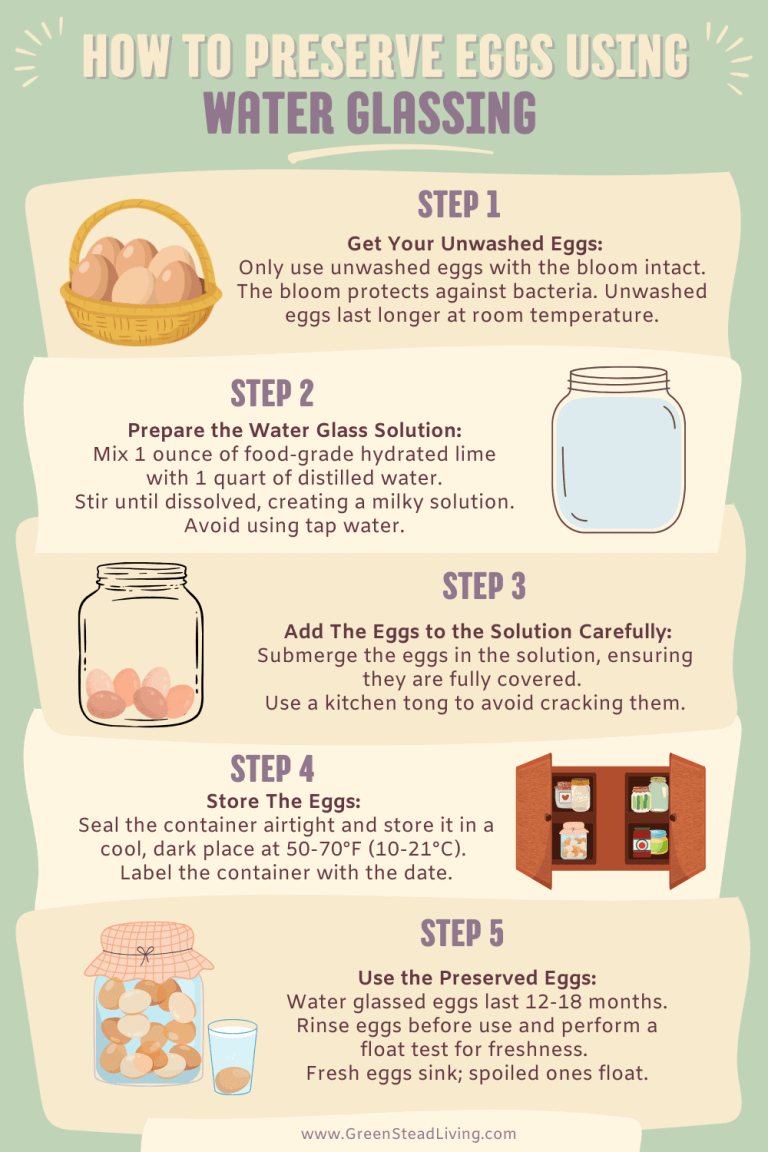
What You Will Need
Before we start, you will need the following:
Water glassing, alongside almost every other method of preserving eggs, only works on unwashed eggs that have not had the clear antimicrobial coating on the shell removed. This is called the bloom.
This protective coating helps to seal the eggshore pores, reducing the risk of bacteria, like Salmonella, penetrating the shell. Washing eggs removes this barrier, making the eggs more susceptible to contamination.
Whether your store-bought eggs have this bloom already removed depends largely on which region you bought them from.
The age-old paradox of “what came first, the chicken or the egg?”, still affects modern food standards today. Instead of arguing about their origin, however, food regulators debate what should be treated first, the chicken or the egg.
The US and Canada take the approach of treating the egg by washing it before allowing it to be sold, hence all store-bought eggs sold in the US and Canada are legally required to have the bloom – the clear antimicrobial coating chickens apply to eggs before they are laid – removed before selling.
This washing process is intended to provide clean and ready-to-eat eggs free of all the chicken poop, features, and whatever else resides in a chicken coop, and is intended to avoid any potential contamination from salmonella.
Europe, on the other hand, takes a treat-the-chicken approach and vaccinates chickens for salmonella while also testing them regularly. Free from any salmonella risks, the eggs do not need to be washed like their North American counterparts and hence the bloom is left intact. This is why eggs from Europe are never refrigerated and always kept on the shelf – their protective bloom is intact and they are not required to be chilled.
Unwashed eggs will likely keep for a few months at room temperature, whereas washed eggs will keep for just a few weeks.
If you’re based in Europe, you’re lucky to have unwashed eggs that are ready for water glassing. If you’re in North America, or any other region where eggs are sold washed and refrigerated, you’ll need to source unwashed eggs elsewhere.
Typically, unwashed eggs can be found in small farms that raise their own chickens and sell the extras. You’ve likely seen some for sale when driving past small farms in rural areas.
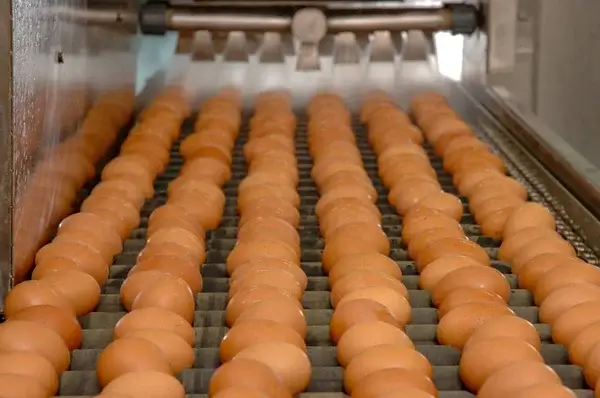
With your unwashed fresh eggs now procured, it’s time to make the water glass solution.
Mix your hydrated lime with distilled (or filtered) water, at a ratio of 1 ounce (about 2 tablespoons) of hydrated lime to 1 quart (4 cups) of water.
The hydrated lime should be food-grade, which it will say on the packaging if it is. While non-food-grade hydrated lime will still preserve eggs, it is not tested or filtered for impurities or chemicals that are not safe for consumption. In some stores, food-grade hydrated lime is also called pickling lime. It is the exact same thing.
Avoid using tap water if possible. Distilled or filtered water will preserve your eggs for longer as it eliminates impurities and contaminants found in tap water that could spoil the eggs or react with the hydrated lime. Again, distilled or filtered water can be purchased cheaply from any grocery store.
In your clean glass container, add the hydrated lime and water and stir thoroughly with a clean non-metallic utensil until the lime is completely dissolved, creating a milky solution.
Carefully (and I mean really carefully) place the eggs in the container, ensuring they are fully submerged in the water glass solution.
Ensure all eggs are fully submerged in the solution. Add more solution if necessary to cover the eggs completely.

Place your lid on the container and securely firmly. The seal must be airtight – oxygen is the enemy of all food preservation techniques as it promotes the growth of bacteria, molds, and yeast, all of which can spoil food quickly. It also leads to oxidation, which can cause fats to become rancid and degrade the quality and nutritional value of the food.
Store the container in a cool, dark place at a temperature range of 50-70°F (10-21°C). A basement, cellar, or cool pantry is ideal, but anywhere that avoids direct sunlight and keeps the container away from heat sources will work perfectly fine.

When done correctly, water glassing can preserve eggs for up to 12 to 18 months, depending on how fresh your eggs were before they were water glassed.
When the time comes to use the eggs, carefully remove them from the solution using a clean metal utensil. Rinse them with clean water before use.
It’s a good idea to check your preserved eggs for freshness before eating, as there is always a chance that the preservation was not effective (an egg could have microcracked or was bad to start with).
The easiest way is the float test, where you place the egg in a container of water and see if it sinks (which indicates it’s good) or floats (which indicates that it has spoiled).
When you crack the egg open, give it a quick smell. A fresh egg will have a neutral odor, while a spoiled egg will have a distinct, unpleasant smell.

Water-glassing your eggs to preserve them for long-term storage is an old-age technique that is both fascinating and incredibly practical. Water glassing not only keeps your eggs fresh for up to 18 months but also connects you with a simpler, more resourceful way of living.
Water-glassing your eggs to preserve them for long-term storage is an old-age technique that is both fascinating and incredibly practical. Water glassing not only keeps your eggs fresh for up to 18 months but also connects you with a simpler, more resourceful way of living.
Water glassing dates back centuries and is how the pioneers preserved eggs. When done right, it can be a safe and effective way to store eggs for up to 18 months.
Store the container in a cool, dark place at a temperature range of 50-70°F (10-21°C). A basement, cellar, or cool pantry is ideal, but anywhere that avoids direct sunlight and keeps the container away from heat sources will work perfectly fine.

Learn how to start a permaculture garden: an easy beginners guide to creating a sustainable, thriving ecosystem in your own yard.
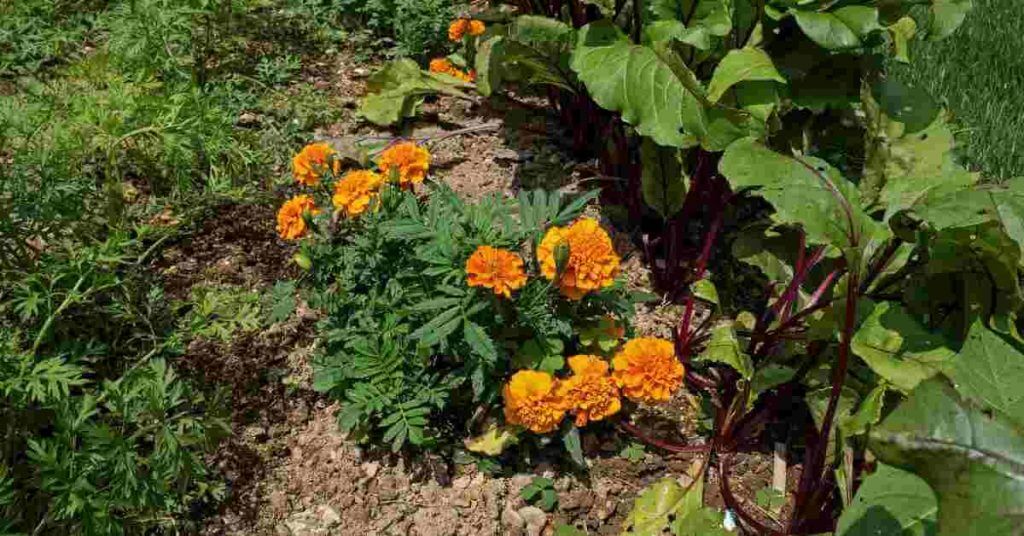
Looking for which plants are best for companion planting with flowers? This article contains a table with the best flowers and their many benefits.
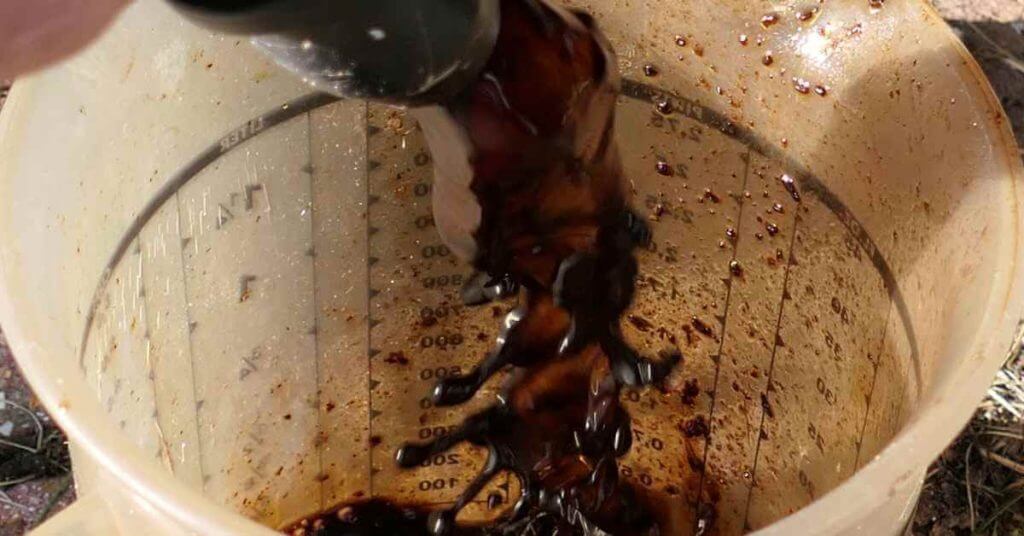
Discover the benefits of organic gardening with our guide on how to make compost tea. This simple process enriches soil, promoting plant health.
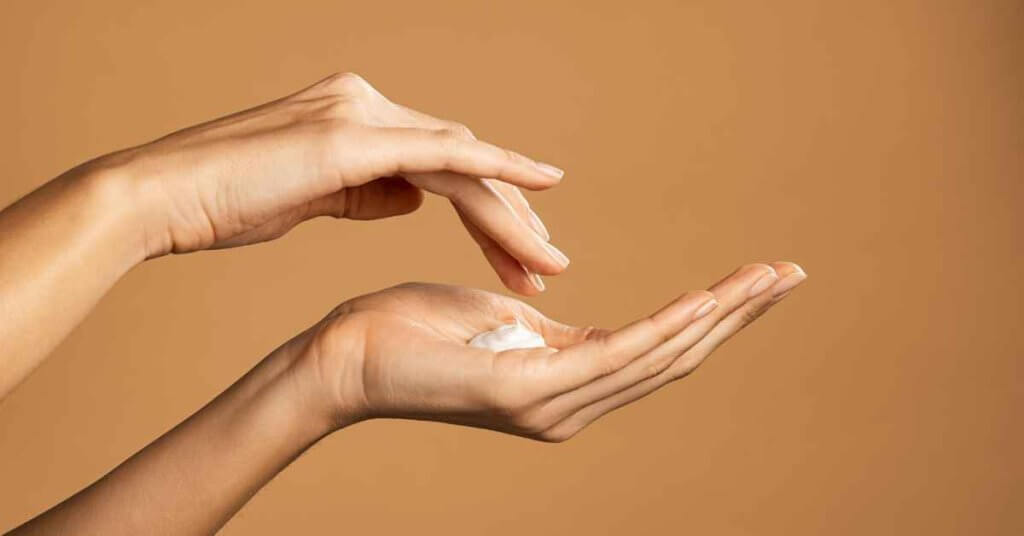
Learn about the benefits of beef tallow for skin, from its complement of skin enriching vitamins to its complete fatty acid profile.
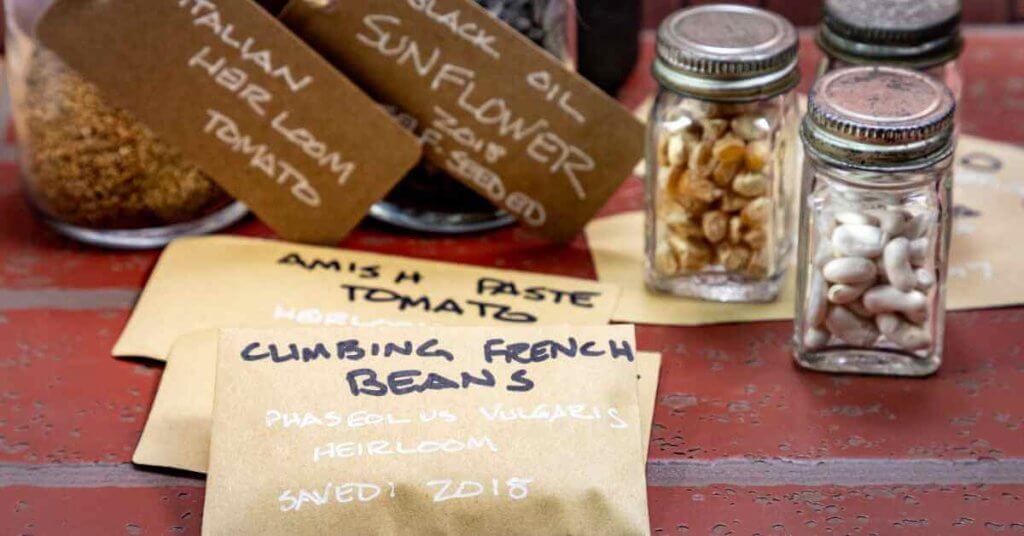
Heirloom seeds are varieties passed down for generations, preserving diversity. But what are heirloom seeds? They’re treasures of taste and tradition.
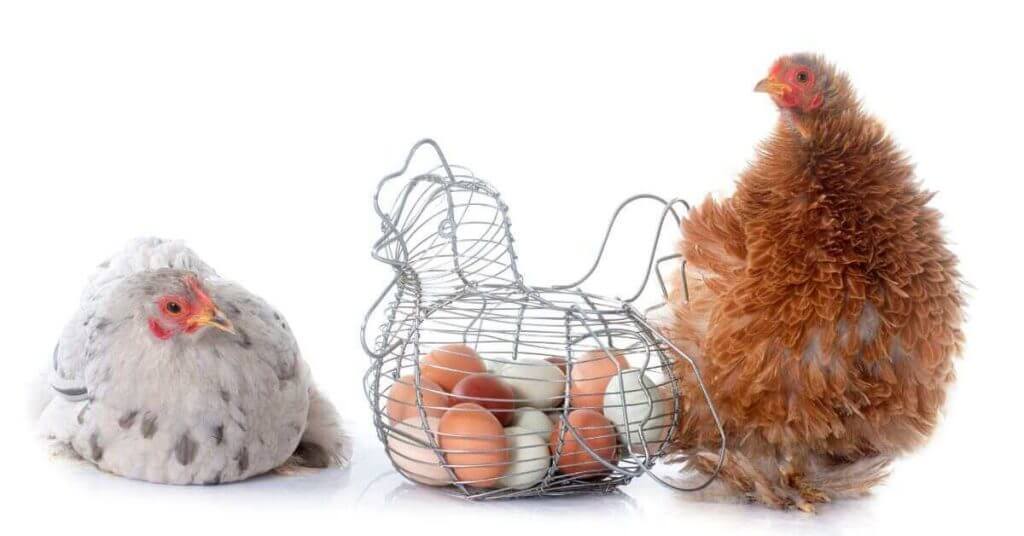
A comprehensive overview of everything you need to know about what are bantam chickens, including whether they are the right fit for you,